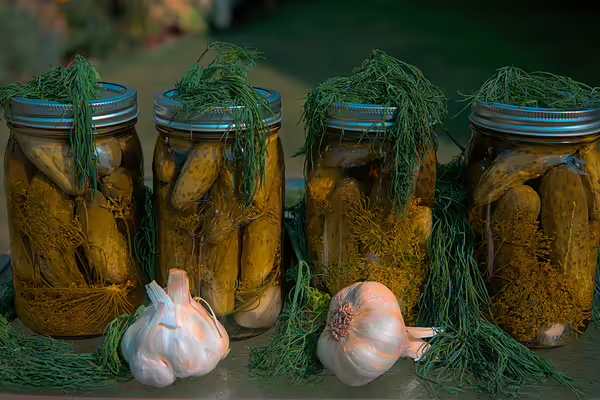
URBANA, Ill. — There’s a long list of home canned foods that use vinegar as an ingredient, including salsa, pickled vegetables, barbeque sauce, and preserved fruits like apple butter and cantaloupe pickles, as well as canned tomatoes as an acidifier. The vinegar increases acidity, thus lowering pH, helping these foods reach a safe pH for boiling water bath canning.
Recipes from the USDA Complete Guide to Home Canning and the National Center for Home Food Preservation are tested using vinegar diluted to 5%. Home canners and Cooperative Extensions office around the U.S. are sharing observations of vinegar with different levels of acidity being sold in stores.
University of Illinois Extension urges home canners to buy vinegar with 5% acidity for continued safe canning. If you have used diluted vinegar of 4% acidity or less in home canning, throw out those canned foods. If you have canned using less than 5% acidity vinegar and it has been less than 24 hours, move those jars to a refrigerator, as these foods are not considered safe to store at room temperature.
The National Center for Home Food Preservation strongly advises against using vinegar with acidity levels of less than 5%, as it may not be sufficiently strong to ensure the safety of the canned products. The center also urges home canners to remember to check the vinegar label for its acidity level.
For information on home preserving, including canning, freezing, drying, and fermenting, visit extension.illinois.edu/food/food-preservation or contact a local extension office.
SOURCE: National Center for Home Food Preservation, University Georgia Extension
WRITER: Caitlin Mellendorf, Nutrition and Wellness Educator, University of Illinois Extension
INTERVIEWS: Contact Dolan Klein, dolank@illinois.edu, 217-333-7958 to request specialist interviews on this topic.
Illinois Extension leads public outreach for University of Illinois by translating research into action plans that allow Illinois families, businesses, and community leaders to solve problems, make informed decisions, and adapt to changes and opportunities. Illinois Extension is part of the University of Illinois Urbana-Champaign College of Agricultural, Consumer and Environmental Sciences.